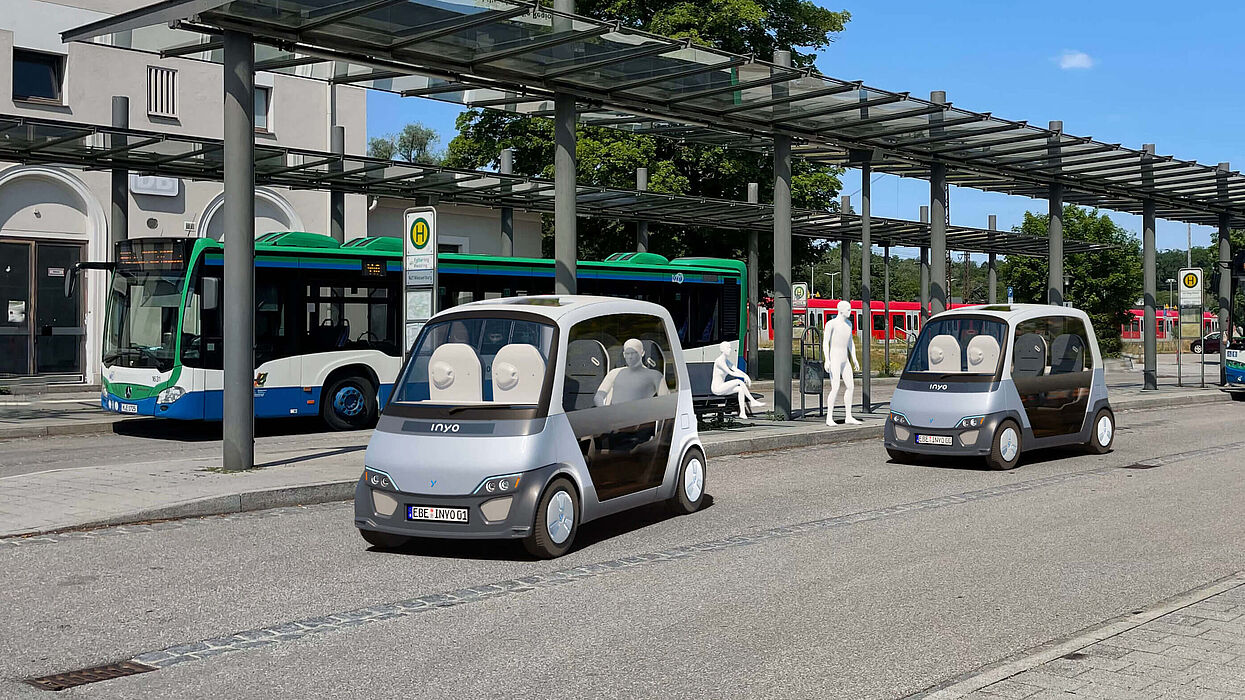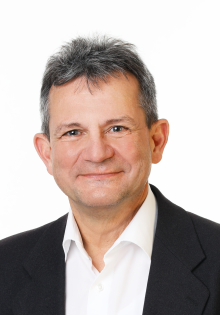In December, the German government published its strategy for autonomous driving in road transport. The large-scale mobility system NeMo.bil, whose initiator Prof Dr Thomas Tröster heads the Chair of Lightweight Automotive Design at Paderborn University, is presented as an example for the field of local public transport. The "New Mobility Paderborn" initiative, in which more than 70 network partners have joined forces under the leadership of Paderborn University, is committed to linking the transport and energy transition as an application centre. It is revolutionising the transport of people and goods through innovative vehicle concepts and sustainable energy generation. The principle: several vehicles, so-called autonomous cabs, join together to form a convoy and enable a practical urban-rural connection for work, living and leisure. The journeys are made individually as required and without interruptions or changes of vehicle.
"Cabs on Demand"
The initiative has been sponsored by the Westphalia Foundation for several years and is involved in the "NeMo.bil" project, which is funded by the Federal Ministry for Economic Affairs and Climate Protection (BMWK) with around 17 million euros and managed by INYO Mobility GmbH. The aim is to develop an innovative concept for public transport based on swarm intelligence. Data-based solutions and autonomous driving will be combined with a new vehicle system. "The latter consists of autonomous ultra-light vehicles, the 'NeMo.Cabs', which collect individual passengers and dock onto train vehicles, the so-called 'NeMo.Pros', on certain routes. Shortly before reaching their destination, they uncouple and then travel the last few metres on their own again," explains Tröster. The train vehicle also serves as an energy distributor based on hydrogen technologies, "as a kind of mobile charging station".
Hydrogen technologies and mobility hub for energy supply
The development requires various scientific and technical sub-solutions, including scalable lightweight support structures, drive and energy storage systems as well as components for convoy operation. "Particular attention is being paid to the energy supply of the NeMo.Cabs by the NeMo.Pro during the journey, for which we are developing energy storage systems with a high energy density and a mobile bidirectional charging system with partners in the consortium," says Prof Dr Henning Meschede, who conducts research in the "Sustainable Materials, Processes and Products" profile area at Paderborn University. But the pros also need to be supplied with energy. The consortium is therefore planning hubs as mobility-energy interfaces at central hubs. From there, the towing vehicles will be supplied with hydrogen, among other things. Tröster explains: "The holistic view of a mobility system that is to be powered by sustainable energy requires integrated concepts that also directly consider energy supply systems."
In addition to Paderborn University and the Paderborn New Mobility Association, NeMo.bil involves Aspens GmbH, AVANCO Composites GmbH, Bulight GmbH, CADFEM Germany GmbH, CP Tech GmbH, the German Aerospace Centre, dSPACE GmbH, the FIWARE Foundation e.V., HOLON GmbH, INYO Mobility GmbH, LIA GmbH, PHOENIX CONTACT E-Mobility GmbH, Poppe + Potthoff GmbH, Reisewitz GmbH & Co KG, Augsburg University of Applied Sciences and Arts, OWL University of Applied Sciences, Dortmund University of Technology and the Social Science Research Centre Berlin gGmbH.
Further information is available at: www.nemo-paderborn.de.
This text was translated automatically.


